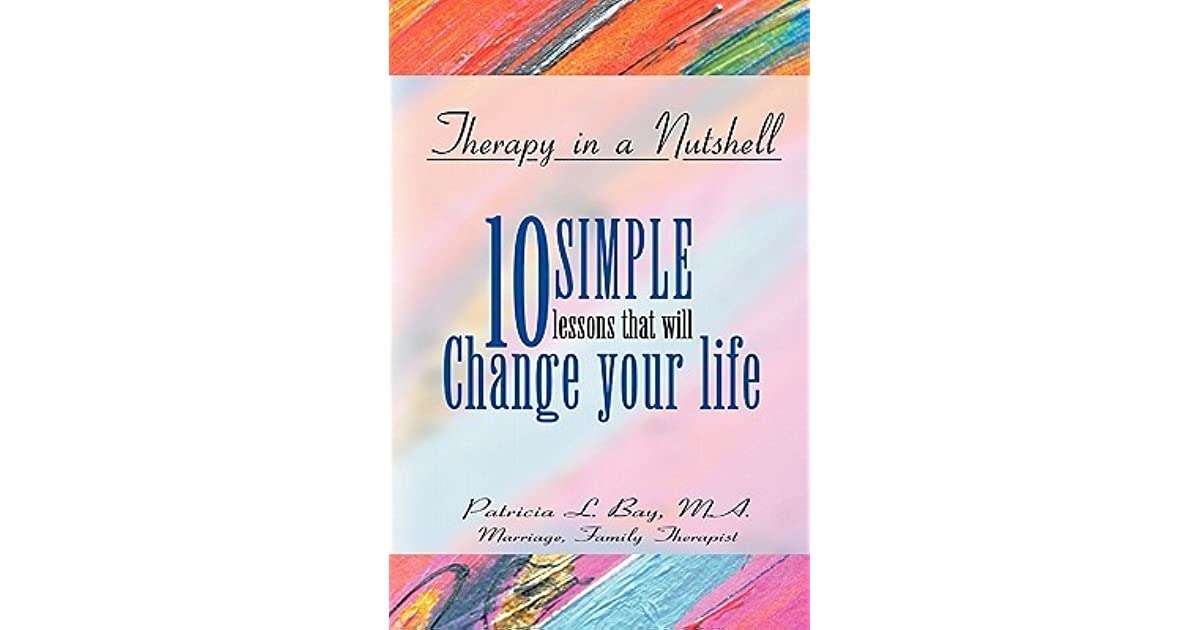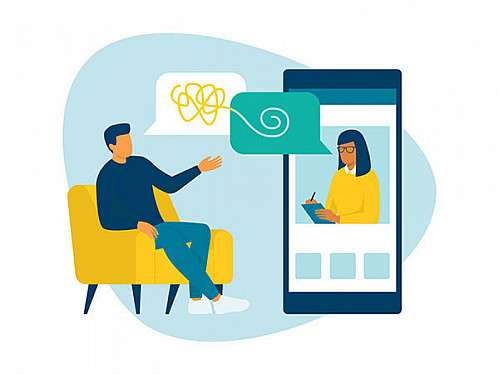Anxiety, Depression, Stress: Why the Differences Matter 
It’s easy to get the care you need.
See a Premier Physician Network provider near you.
Schedule Now
Anxiety, depression and stress — just about everyone feels these emotions at some time. All are common reactions to life’s challenges, from losing a loved one to going through a divorce. On the surface they can look a lot alike, but there are distinct differences.
Is It Anxiety or Depression?
If you often feel anxious or depressed for no apparent reason, you may have an anxiety disorder, depression, or both. It’s not unusual for someone to suffer from both conditions at the same time. In fact, just about half of those diagnosed with depression are also diagnosed with an anxiety disorder.
Depression and anxiety are serious but treatable illnesses. The same medications may be used to ease symptoms of each condition. The two also share similar symptoms, like nervousness, irritability, insomnia and problems concentrating, but each has its own causes.
Anxiety: If you have an anxiety disorder, you may experience:
- Fear, panic or anxiety in situations where most people would not feel anxious or threatened
- A constant nagging worry or anxiousness
- Sudden panic or anxiety attacks without any clear trigger
Untreated, these disorders can limit your ability to work, maintain relationships or even leave the house.
Depression: When you’re depressed, it affects just about everything in your life — how you think, feel, behave and function. You may experience one or more of these symptoms:
- Discouragement
- Sadness
- Hopelessness
- Anger
- Lack of motivation or interest in life in general
- Low energy level
- Insomnia
- Feeling overwhelmed by daily tasks and personal interactions
If these feelings last longer than two weeks, and interfere with daily activities like spending time with friends, caring for your family or going to work, most likely you’re experiencing a major depressive episode.
In fact, just about half of those diagnosed with depression are also diagnosed with an anxiety disorder.
What About Stress?

Stress and anxiety may seem similar, but they’re not the same. The difference? Stress is a response to daily pressures or a threatening situation, while anxiety is a reaction to the stress. Anxiety, which has no clear cause, tends to last longer and be more difficult to treat.
Stress affects a lot of people, and can influence your health. Symptoms include:
- Headaches
- High blood pressure
- Chest pain
- Heart palpitations
- Skin rashes
- Loss of sleep
Stress typically goes away when the stressors disappear. However, chronic stress can escalate into anxiety or depression, so it’s important to take steps to reduce or eliminate stress whenever possible.
If you’re not sure whether you’re suffering from stress, anxiety or depression, don’t delay in talking to a health care provider to get the help you need. The journey to recovery begins with defining the cause of your issues and getting the right treatment.
It’s easy to get the care you need.
See a Premier Physician Network provider near you.
Schedule Now ![]()
[Originally published: May 21, 2020. Updated: Sep 22, 2022.]
Long before the coronavirus pandemic mixed fear and uncertainty into daily life, Americans felt stressed out.
They worried about the country’s rising health care costs, struggled to pay them, and wondered if they could even access care in the future. One-quarter of U.S. adults reported discrimination—based on race and gender—as a significant source of stress. And on an individual level, work and money ranked as the top two major stressors, all according to a 2019 study.
Wherever constant stress lives, so too does its more agitated and debilitating cousin: anxiety. About 31% of Americans will experience an anxiety disorder at some point in their lives, with adult and teen women experiencing one far more often than men, according to the U.S. National Institute of Mental Health.
The problem has worsened during the pandemic, with the percentage of adults reporting recent symptoms of anxiety or a depressive disorder increasing from 36.4% to 41.5% between August and February of 2021.
Now, Americans have been reporting even more heightened anxiety about inflation, loss of income, and gun violence, according to a national poll from the American Psychiatric Association in June 2022.
Given all these factors, the U.S. Preventive Services Task Force (USPSTF) recently released a draft recommendation saying doctors should screen all adults under age 65 for anxiety. The USPSTF is a group of independent medical experts that makes recommendations to guide doctors. The draft recommendation is not final, and the public can make comments on it through Oct. 17. The group says the intention is to help prevent mental health problems from going undetected and untreated for years. It made a similar recommendation for children and teenagers earlier this year.
What’s more, anxiety often goes hand-in-hand with depression. Nearly half of people diagnosed with depression also have an anxiety disorder, according to the Anxiety and Depression Association of America. At any one time, “about 7% of the U.S. population meets criteria for a major depressive disorder,” says Rachel Katz, MD, a psychiatrist at Yale Psychiatric Hospital.
As if those statistics weren’t worrying enough, the pandemic has upended daily life in numerous ways over the past few years—causing sickness, death, job loss, and disrupting schedules for children and adults.
“With these concerns, the experience right now is, ‘I don’t have a lot of control over what is happening around me,’” says Carolyn M. Mazure, PhD, a Yale Medicine psychologist and director of Women’s Health Research at Yale.
Feeling a lack of control over a situation can lead to stress, anxiety, and even depression. Recognizing the differences between the them can lead to the right treatment.
What is stress, and what happens when you can’t cope well with it?
Stress can present itself after being fired from a job, going through a divorce or losing a loved one. Even getting married, transitioning to a new job or having a baby can cause stress. Everyone experiences stress at one time or another.
Many people define stress as either good or bad when it’s neither. Stress is an event you view as out of your control, and it typically occurs outside your daily routines. How you react shapes your ability to cope with these and other similar events in the future.
When people struggle to cope with stressful situations, depression and anxiety become more noticeable.
Anxiety and depressive disorders are common. These illnesses affect more than 40 million adults in the U.S., or about 18% of the population, every year. The World Health Organization has estimated that the COVID-19 pandemic led to a 27.6% increase in depression and 25.6% increase in anxiety disorders worldwide in 2020.
The most common anxiety disorders include:
- Specific phobias
Phobias could be related to animals, like spiders, cats or dogs; the natural environment, such as heights, storms or being in water; blood injection injury, which is a fear of needles or invasive medical procedures; or locations, like airplanes, elevators or enclosed places. - Social anxiety disorder
This is a fear of being around other people or in social situations. - Generalized anxiety disorder
This is an overall worry about many different things. - Separation anxiety
This is an excessive fear of, or anxiety concerning, separation from attachment figures or items. - Panic disorder
This is an abrupt surge of intense fear or discomfort.
The most common depressive disorders include:
- Major depressive disorder
This is a depressed mood that lasts for a two-week period. This could occur as a single or recurrent episode. - Persistent depressive disorder
This is a depressed mood that occurs almost every day for at least two years
It’s common for those struggling with anxiety disorders to also struggle with depression or vice versa. Close to 10% of the world’s population suffers from anxiety and depression. However, while anxiety and depressive disorders are highly treatable, only a small percentage of affected people receive treatment.
How are stress, anxiety and depression connected?
Anxiety and depression can be caused by several things, including:
- Genetics
- Environmental exposure
- Personality
- Life events
Early signs of anxiety and depression
An early warning sign for anxiety or depression occurs when someone begins avoiding things once enjoyed.
Other warning signs for anxiety include:
- Shakiness
- Increased heart rate
- Tightness in the chest
- Rapid breathing
- Racing thoughts
Meanwhile, warning signs for depression include:
- Isolating oneself
- Frequently thinking negative thoughts
- Recurring feelings of sadness
- Advanced signs of anxiety and depression
Advanced signs of generalized anxiety disorder include:
- Excessive worry occurring more days than not for at least six months
- Feeling restless
- Fatigue or frequently feeling tired
- Difficulty concentrating
- Irritability
- Muscle tension
- Sleep disturbances, like difficulty falling or staying asleep
- Distress or impairment in social, occupational or other important areas of functioning
Advanced signs of a major depressive disorder include:
- Feeling down or depressed most of the day, nearly every day
- Diminished interest in activities you once enjoyed
- Significant changes in your weight (increase or decrease)
- Difficulty with sleep, like difficulty falling, staying asleep or sleeping too much
- Fatigue or frequently feeling tired
- Difficulty concentrating
- Recurrent thoughts of death
- Distress or impairment in social, occupational or other important areas of functioning
To cope with anxiety and depression, try these tips:
Try diaphragmatic and square breathing techniques.
Diaphragmatic breathing involves taking a deep breath from your diaphragm. Your stomach should expand as you breathe in. Square breathing techniques involve taking a deep breath in for five counts, holding this deep breath for five counts, exhaling for five counts and finally holding for five counts before repeating. The entire time should be spent focusing on your breath versus the stressful event.
Challenge your thoughts.
This involves not judging situations — good or bad — and focusing on what you’re feeling and identifying what’s in your control. Your primary areas of control are acknowledgement of your emotions, feelings and your reaction to stressful situations. It is also important to focus on the facts of the situation. Sometimes your anxious and depressive thoughts are not always based in facts. Facts are 100% absolute — not assumptions.
Ask yourself:
- What am I feeling?
- What are these emotions?
- How would I like the situation to turn out?
- What are the facts?
Then identify small, specific goals to get to your desired outcome. If you fail to acknowledge your emotions and feelings and attach a negative thought to a situation, the outcome of that situation will result in avoidance and increased anxiety and depression.
Focus on the facts.
Challenge yourself to find the facts in a situation and acknowledge whatever emotions and feelings the situation reveals. Doing so increases the likelihood you’ll be able to cope effectively with a stressful situation.
When to seek professional help
It’s best to talk to a health care professional when:
- You find it difficult to function in your daily life.
- You no longer participate in activities you once enjoyed.
- You find it difficult to get out of bed.
Treatment for anxiety and depression
Medications and psychotherapy are effective for most people with depression and anxiety. Your primary care provider or psychiatrist can prescribe medications to relieve symptoms. Many people benefit from outpatient psychotherapy, like cognitive behavioral therapy or dialectical behavioral therapy.
Additional treatment can include changing your exercise or eating habits, using social supports, getting enough sleep, changing your responses to stress, avoiding alcohol and recreational drugs, and joining a support group.
If you have severe depression or anxiety, you may need to use crisis resources, like contacting a crisis hotline, going to the nearest emergency department for a mental health evaluation or participating in an inpatient or outpatient treatment program until your symptoms improve.
Why it’s important to address your mental health
It’s important for people to address their mental health to live lives that are fulfilling. Acknowledging and treating your mental health helps create resilience. It also teaches you to better cope. Then when a similar situation occurs, you are equipped to handle it.
Stressful situations are going to happen. How you react can determine how these situations will affect you. Many resources are available regarding anxiety, depression and stress. Talk to your health care team if you have concerns about your mental health.
Call or text 988 for the 988 Suicide and Crisis Lifeline.
Jolene Hanson is a social worker in Psychiatry & Psychology in Mankato, Minnesota.



